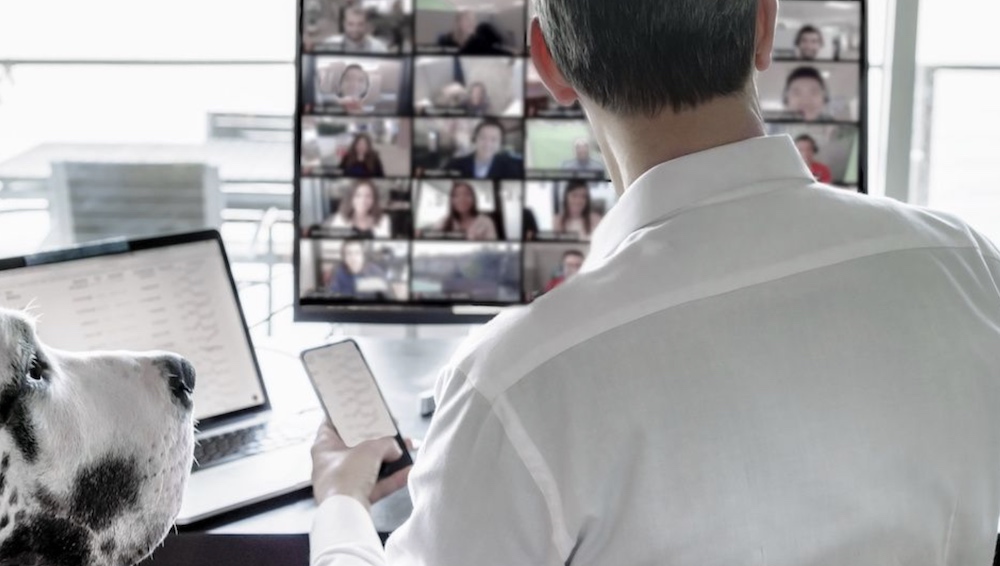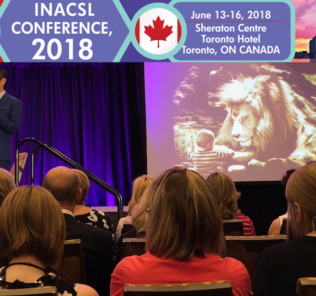Top Healthcare Simulation Debriefing Webinars
Some may argue that debriefing is the most important component of a clinical simulation experience. This period of time following an experiential learning activity allows learners and teams to reflect, review and discuss each healthcare simulation experience. Discussing the importance of healthcare simulation scenario debriefing, HealthySimulation.com provides a number of presentations focused on this process. Engaging in these healthcare simulation webinars will help participants gain insight into how debriefing greatly impacts the overall clinical simulation learning experience.
Debriefing Psychologically Stressful Simulations: A Different Perspective (1 Contact Hour of RN CE)
Presented by Nicole Harder, Ph.D., RN, this one-hour, intermediate webinar shares a research study that developed a psychologically safe debriefing framework that helped nursing learners and newly graduated nurses to effectively process feelings and emotions following end-of-life simulation-based experiences (SBE). This research is especially important as there are no known SBE debriefing frameworks based on psychological safety that are purposely intended to debrief feelings and emotions following psychologically stressful SBEs.
Sponsored Content:
Given that SBE and associated learning outcomes have been shown to have a high degree of transferability to clinical settings, the development of a psychologically safe debriefing framework to prepare healthcare providers for the emotional/psychological issues that may be encountered after the death of a patient using SBEs was warranted and should be highly generalizable to the clinical setting. Learning objectives include:
- Identify the components of a psychologically safe debriefing framework.
- Apply a psychologically safe debriefing framework to emotionally or psychologically stressful simulation experiences.
- Summarize the research related to the application of a psychologically safe debriefing framework following an end-of-life simulation.
More About the Presenter: Nicole Harder, RN, Ph.D., CHSE, CCSNE is an Assistant Professor, College of Nursing, and the Mindermar Professor in Human Simulation, Rady Faculty of Health Sciences at the University of Manitoba. Nicole’s simulation research work has been funded by local and national funding bodies, mainly in the area of non-technical skills development.
Dr. Harder is the editor-in-chief for the peer-reviewed journal Clinical Simulation in Nursing, is a former board member for the International Nursing Association for Clinical Simulation and Learning, and currently serves on the board of the Réseau Simulation Canada Network. She is also an educator for the Canadian Association for Schools of Nursing in the Simulation Nurse Educator certificate program.
Disclosures: Dr. Harder is the Editor-in-Chief, Clinical Simulation in Nursing.
Sponsored Content:
Exploring Self Debriefing and Group Debriefing in Clinical Simulation (1 Contact Hour of RN CE)
Presented by Merveille Ndondo, BScN, RN, MN, and Raquel Lashley-Trambulo, BScN, RN, this one-hour, intermediate webinar explores adding self-debriefing to a facilitated group debrief to enhance the learner experience. There are many standardized debriefing methods in simulation. According to Ndongo, in an academic setting, clinical simulation is usually run for novice learners. They come with little to no experience in their field of study and participate in simulation with knowledge gained from lectures and practice labs.
Adding a self-debrief to a facilitated group debrief was found to enhance learners’ clinical simulation experience. A mixed-method study was done on fourth-year baccalaureate nursing students and results will be shared in this presentation. During this presentation, Ndondo will discuss four themes as they relate to debriefing: psychological safety, learning, methodology, and reflection. Learning objectives include:
- Analyze how self-debriefing enhances self-awareness and reflection.
- Examine how psychological safety can be enhanced with self-debriefing prior to group debriefing.
- Discuss how the use of combining debriefing formats can optimize learning after simulation.
More About the Presenter: Merveille Ndondo, BScN, RN, MN, is a registered nurse with a master’s degree in nursing. She works as a simulation coordinator at Ryerson University in the nursing program. In her role, she supports learner success, advancing innovation in teaching and research that drives positive change. She also has experience in critical care nursing, with ten years of nursing experience in the Intensive Care Unit.
Disclosures: Presentation research developed with multiple faculty and staff from one nursing collaborative program, involving three schools.
Improv and In-Sim Debriefing: Kick Anxiety Out, Allow Learning In (1 Contact Hour of RN CE)
Presented by Candace (Candy) Campbell, DNP, RN, CNL, CEP, LNC, FNAP, this one-hour, intermediate webinar looks at the science behind behavioral learning and how improv can be utilized to overcome clinical training barriers. Since the early 2000s, miscommunication in healthcare has been cited by the IOM and other studies as a major factor in causing medical errors, near-misses, and sentinel events.
The method of clinical simulation learning has been used to assist individuals and teams to learn, practice, and improve their clinical and communication skills. As a newer method, educators consistently reach for evidence of best practices to assist learners with the goal to improve team communication and increase patient safety. Learning objectives include:
- Restate the cognitive-behavioral and neuroscience research relating to best learning practices.
- Explain the correlation between an atmosphere of safety and the ability to establish new patterns of self-confidence, trust, and adaptability.
- Compare and contrast the In-Sim Debriefing vs Post-Sim Debriefing process and how it applies to clinical student learning.
More About the Presenter: Candace (Candy) Campbell, DNP, RN, CNL, CEP, LNC, FNAP, aka The Innovation Nurse, creates transformational experiences through blending art and science for positive system change. She has worn two hats for many years; one as a healthcare professional and the other as a professional actor. Dr. Campbell’s doctoral studies spanned the areas of interprofessional communication and public policy. Her thesis project built upon her previous work teaching and performing Improv outside of the healthcare arena.
She continues to work with healthcare industry clients to build strong teams through personal accountability and better communication, which combines her talents in theater and healthcare. Her book, Improv to Improve Healthcare: A System for Creative Problem-Solving has received rave reviews from healthcare leaders.
Disclosures: Campbell has her own business as corporate healthcare and legal nurse consultant, author, actor, filmmaker.
Virtual Debriefing in the Age of COVID-19 (1 Contact Hour of RN CE)
Presented by Adam Cheng, MD, FRCPC, this one-hour intermediate webinar discusses how the communities of Inquiry conceptual framework can be used as a useful structure to organize practical guidance for conducting virtual debriefings and highlight practical strategies to promote effective virtual debriefings. Learning objectives include:
- Describe how the communities of inquiry conceptual framework apply to virtual debriefing.
- Highlight how social, cognitive, and educator presence can be enacted during virtual debriefings.
- Discuss barriers to and accompanying solutions for effective virtual debriefings.
More About the Presenter: Adam Cheng is Professor, Departments of Pediatrics and Emergency Medicine at the University of Calgary in Calgary, Canada. As a scientist and researcher at the Alberta Children’s Hospital Research Institute, he oversees a program of simulation-based research focused on improving outcomes from cardiac arrest. He co-founded the INSPIRE network, an international research simulation collaborative with over 250 institutions that have fostered the global dissemination of simulation-based research. He has served on the Board of Directors of both the Society for Simulation in Healthcare and the International Pediatric Simulation Society. He has provided leadership for various international simulation conferences and delivered lectures and workshops at conferences around the world.
Dr. Cheng conducts research with interests in cardiopulmonary resuscitation and debriefing and has led numerous multicenter simulation-based research trials. He has edited several textbooks and authored various American Heart Association Cardiopulmonary Resuscitation guidelines and scientific statements.
More About HealthySimulation.com Webinars
HealthySimulation.com’s streamlined clinical simulation webinar platform relaunched in February, and has since featured even more informative and insightful healthcare simulation presentations! These webinars offer live and on-demand content from some of the world’s leading healthcare simulation experts, covering everything necessary to successfully start, develop or expand a clinical simulation program. Topics range from safe medication administration to moulage and manikin functions. Below are HealthySimulation.com’s five most popular webinar presentations to date — all recorded and viewable from anywhere at any time.
Learn More About Upcoming Clinical Simulation Webinars
Lance Baily, BA, EMT-B, is the Founder / CEO of HealthySimulation.com, which he started in 2010 while serving as the Director of the Nevada System of Higher Education’s Clinical Simulation Center of Las Vegas. Lance also founded SimGHOSTS.org, the world’s only non-profit organization dedicated to supporting professionals operating healthcare simulation technologies. His co-edited Book: “Comprehensive Healthcare Simulation: Operations, Technology, and Innovative Practice” is cited as a key source for professional certification in the industry. Lance’s background also includes serving as a Simulation Technology Specialist for the LA Community College District, EMS fire fighting, Hollywood movie production, rescue diving, and global travel. He and his wife live with their two brilliant daughters and one crazy dachshund in Las Vegas, Nevada.
Sponsored Content:
















